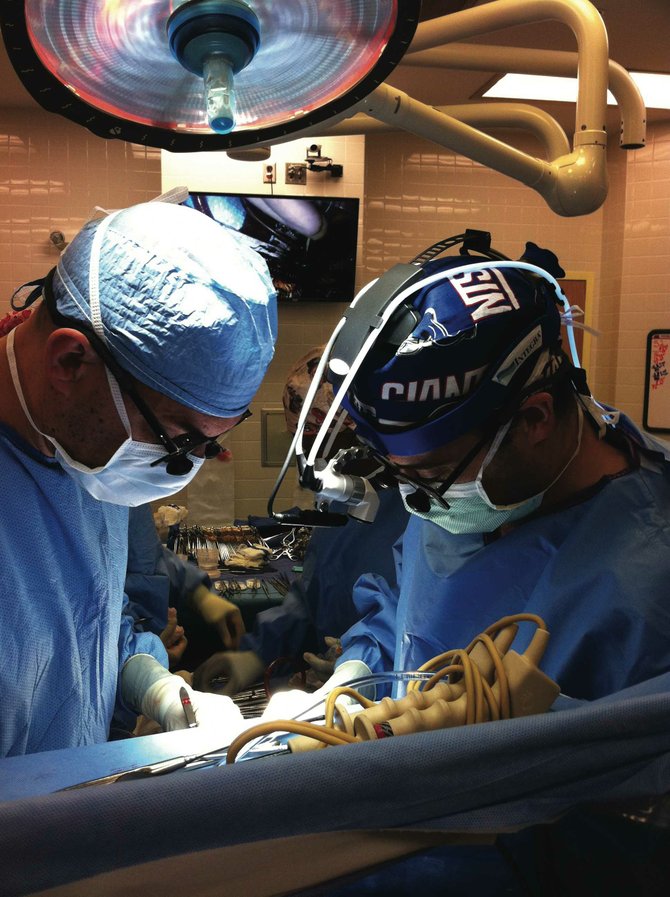Dr. Jorge Salazar (left) and Dr. Daniel DiBardino perform complex procedures on children with heart defects at the Blair E. Batson Hospital for Children. Photo by Courtesy UMMC
Treating children's heart defects can be a harrowing experience. The most serious conditions require long hospital stays and multiple surgeries. One local surgeon says his team is achieving good results in treating the most complex heart defects, even in patients that statistically do worse than others.
Dr. Daniel DiBardino, a congenital heart surgeon at the Blair E. Batson Hospital for Children, looked at outcomes for seven benchmark procedures between April 2010 and November 2011 and found that Batson's team had a hospital discharge mortality rate better than the national average.
The congenital heart surgery team also performed the first Norwood procedures ever done in the state. Norwood procedures are a series of operations for babies born with only half of a heart.
"These are the sickest children in the hospital," DiBardino said in a statement. "For the 19 babies evaluated in the last 22 months, we've had to do 63 procedures with a discharge mortality rate of 7 percent. The national average for this operation is between 17 and 19 percent."
Before Batson put together its congenital heart surgery team, patients with complex defects had to travel out of state, the statement said. Within the two years since, the team has performed more than 550 operations. In 2012, the doctors expect to complete more than 400 operations.
Statistically, the team's patients should be doing worse. Nationwide, African American patients typically have higher mortality rates and more complications from congenital heart surgery and have to spend more time in the hospital. Boys also typically have to spend more time in the hospital after surgery than girls.
Despite the fact that many of the team's patients fit into one of those two categories, Batson's surgery outcomes are still better than the national average.
"We are demonstrating that the very best outcomes can be achieved independent of race and gender," Dr. Jorge Salazar, chief of congenital heart surgery, said in a statement.
"We are overcoming these challenges and achieving outcomes that are equal to or better than the very best programs in the country. It's something Mississippi can be proud of."



Comments
Use the comment form below to begin a discussion about this content.